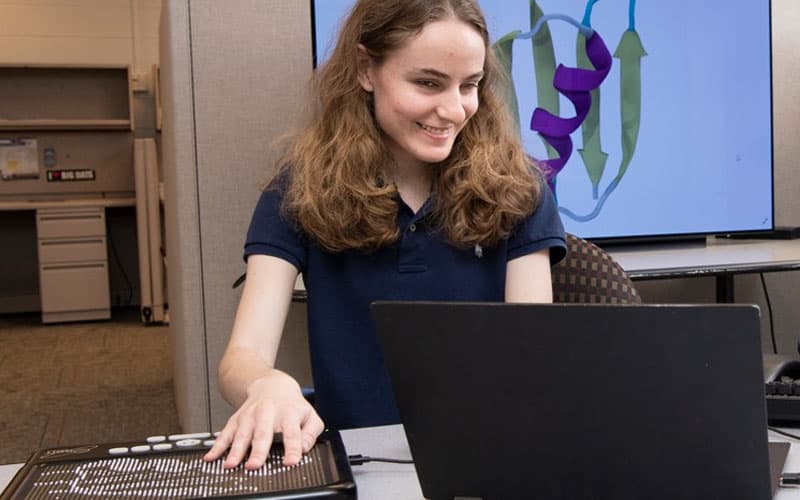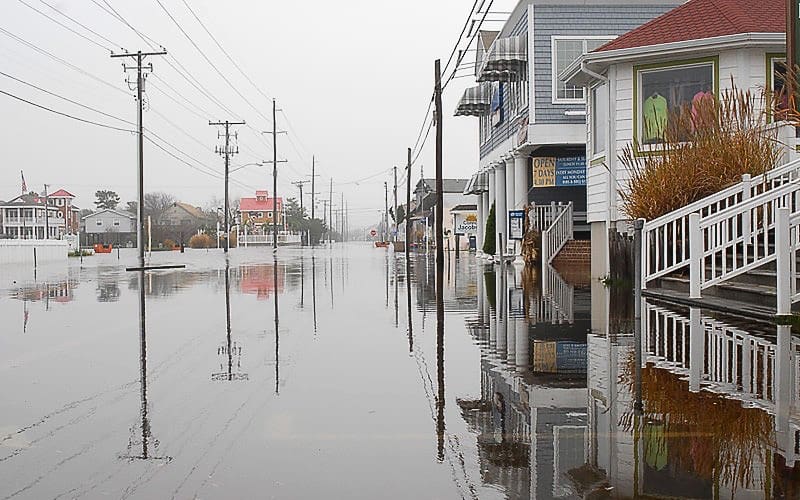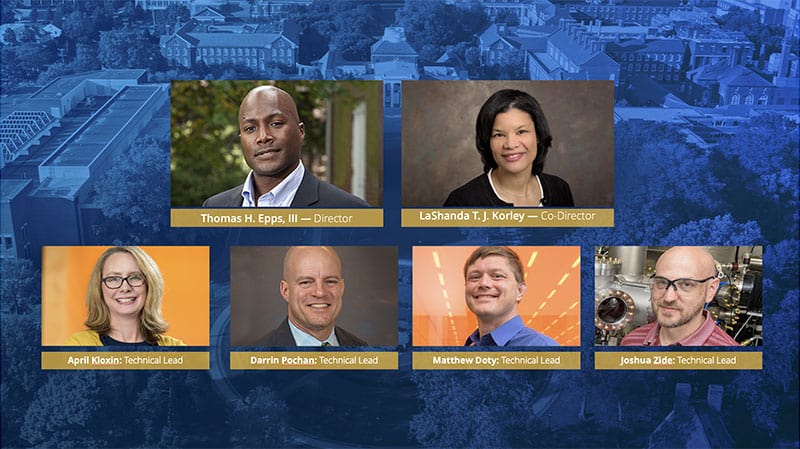 Research & Discovery
Research & Discovery
A Blog Devoted to UD Innovation, Excellence and Scholarship
Research & Discovery
A Blog Devoted to UD Innovation, Excellence and Scholarship
Blind chemistry student does research
ABOVE: UD student Olivia Shaw, who is blind, works in Prof. Jodi Hadden-Perilla’s computational chemistry lab, where Shaw uses special technology to “see” images on a tactile display device. | Photo Kathy F. Atkinson
Chemistry student meets challenges of blindness to find success in the lab
Unlike most other students, Shaw has faced special challenges that come from being blind.
But with the help of technology, supportive faculty, UD’s accessibility services and her own hard work and talents, and with a boost from a special summer research program for undergraduates with disabilities, Shaw is finding success in the classroom and in the lab.
“Olivia was my first student here, and it’s been a great learning experience for both of us,” said Jodi Hadden-Perilla, assistant professor of chemistry and biochemistry, who began mentoring Shaw during the summer program in June, even before her faculty appointment officially began in July. “She’ll try anything and figure it out. She’s absolutely fearless, which I guess is a good thing when you’re a pioneer.”
Shaw, who grew up in Texas and has been blind since birth, was a student at Randolph-Macon College in Virginia last year when a professor encouraged her to apply to the National Science Foundation-funded summer research program for students with disabilities that UD has been holding for several years.
Although Shaw had decided to major in chemistry from the first time she took a course in the subject, she hadn’t previously considered the possibility of conducting research. When she heard from another blind chemist about the field of computational chemistry, she was intrigued by that area of research and expressed her interest when she applied for the summer program at UD.
“My initial basic, undergraduate view of it was: You put a bunch of molecules together in a computer and see what happens,” Shaw said of the molecular simulations that are Hadden-Perilla’s research specialty. “I wasn’t that interested in doing ‘wet lab’ work [with physical samples], but I was very interested in computational work and in studying how things come together atomistically.”
She was accepted into the summer program and began working with Hadden-Perilla. The experience was so positive for both of them that, although Shaw is quick to point out that Randolph-Macon is “a very good school,” she decided to transfer to UD with its wider opportunities for the kind of research she wanted to pursue.
In the fall, as a full-time UD student, Shaw continued working with Hadden-Perilla’s team. While she worked in the lab, her guide dog, a 3-year-old black lab named Ripple, curled up on her own cushion under the table holding Shaw’s computer and other equipment.
In the lab and in her coursework, Shaw uses a text-to-speech function on her computer as well as a Braille reader, so she’s able to access the words of books, documents and research articles. The challenge, she and Hadden-Perilla said, was with illustrations, graphs and other visual representations that are so important in chemistry to show, for example, the structure of molecules.





